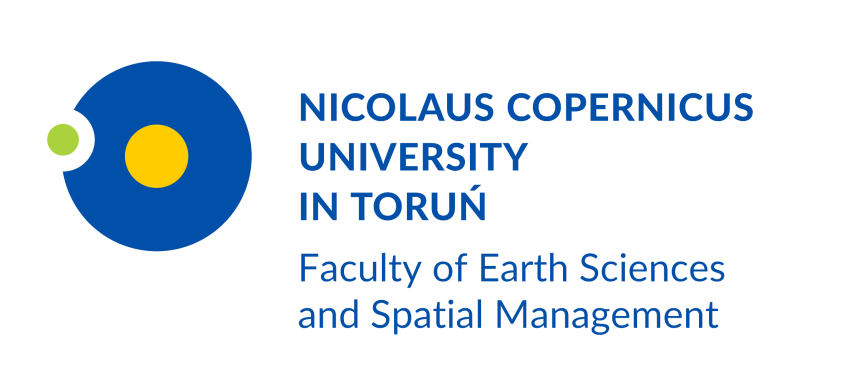The Faculty of Earth Sciences has a sound research base of specialists in environmental and socio-economic sciences. The Faculty also offers various opportunities for collaboration in such areas as:
Environmental Protection and Management
- Environmental analysis in the fields of geology, hydrology and geohazards;
- Comprehensive analysis of the natural environment based on archival data and current cartographic and remote sensing resources;
- Ecophysiographic, sozological and landscape studies, as well as thematic geological, hydrogeological, geo-engineering, sozological and hydrographic mapping;
- Analysis of the environmental impact of industries (economy), reconstruction of natural and anthropogenic processes, noise level studies, sedimentological laboratory analysis;
- Expert reports on the effects of human activity on soil and studies of soil remediation;
- Estimation of the value of use of agricultural and forest soils, laboratory analysis of the physical and chemical properties of soil and deposits;
- Expert reports on the management of organic waste;
- Water and wastewater management plans, water balance and water economy balance;
- Evaluation of catchment water resources; air flow modelling;
- Palynological studies, analysis of plant macroremains, sedimentological and physical and chemical analysis of deposits, sampling and analysis of biogenic deposits and cores with intact structure, sampling of bottom deposits from bodies of water;
Tourism Economics
- Market research and monitoring of tourist flows, tourism audits;
- Development of tourism product strategies;
- Valuation of natural and cultural spaces for tourism and recreation purposes, tourism development plans;
- Meteorological and bioclimatological observations and analysis;
- Development of marketing materials for tourism and recreation;
Spatial Management
- Development strategies, prospective analysis (demographic, studies of rural and infrastructural development), urban physiography, socio-economic and demographic analysis (demographic growth scenarios), economic analysis (e.g. the directions and shaping of specialised service markets), and functional and spatial analysis (e.g. studies of the correlations in public transport);
- Ex-post and ex-ante evaluation of projects financed with European funds;
- Spatial delimitations, location analysis and geosegmentation;
- Analysis of threats and valuation of investment spaces;
- Analysis of changes in land cover and use;
- Landscape auditing;
- Expert reports on transformation of urban and rural areas in the context of their regeneration;
Renewable Energy Sources
- Assessment of wind resources for the purpose of location of wind turbine generators; assessment of solar resources for PV and solar thermal energy systems;
- Renewable energy resources in social and economic development plans;
- Measurement of flow rates in water courses;
- Bathymetric surveys of reservoirs;
- Analysis and assessments in hydrology and water management;
- Examination of geothermal waters and their use in balneology and recreation;
Geographic Information and GIS Implementations
- Acquisition – including by means of unmanned aerial vehicles (UAVs) – and processing of spatial data in Geographic Information System environments;
- GIS-standard development of the results of geological and hydrogeological surveys and data acquired from sozological mapping;
- Design of spatial databases for GIS;
- Analysis and 2D/3D visualisation of the spatial distribution of features and phenomena (e.g. analysis of changes in land cover and use, ecophysiographic studies, analysis of transport accessibility, medical geography analysis, analysis of digital elevation models, etc.);
- Development of 3D models in Google Sketch Up using a photogrammetric system;
- Geo-archaeological analysis (LiDAR detection of archaeological features, analysis of the morphometrics of archaeological structures, visualisation and reconstruction of cultural landscapes);
- Spatial analysis based on digital elevation data (LiDAR, DEM, DTED, SRTM, ASTER) – slope, exposure, visibility range, identification of catchment and runoff directions, changes in the level and resources of water reservoirs, detection of changes in surface features, analysis of potential washout erosion, multi-aspect interpretation of aerial photographs and satellite images, etc.;
Digital and Analogue Cartography
- Development and cartographic editing of analogue and digital maps and thematic layers for geoportals and interactive map systems;
- Geological cartography (e.g. a detailed geological map of Poland, hydrological maps of Poland in 1:50,000 scale, hydrogeological maps of the uppermost water-bearing stratum);
- Development of geomorphological, sozological, hydrographical, pedological maps, etc.;
- Digitisation, calibration and rectification of analogue material;
Social Economics and Medical Geography
- Analysis and expert studies of demographic growth, forecasting, studies of morbidity and mortality, living standards and quality of life, social pathologies; Monitoring of pollen counts in the context of allergies.

 ul. Lwowska 1, 87-100 Toruń
ul. Lwowska 1, 87-100 Toruń